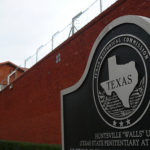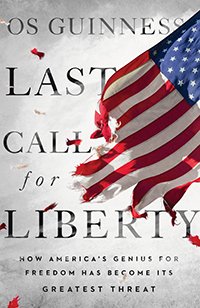HAVANA (BP)—Cubans and Christians familiar with the church in Cuba remember Fidel Castro, who died Nov. 25 at age 90, as both an unwitting catalyst of revival and an opponent of religious liberty.
Castro’s death is unlikely to yield significant increases in religious liberty for the island nation until the fall of the communist government he inaugurated 57 years ago, some Baptists with ties to Cuba said.
Revival emerges from oppression
When Castro led a revolt that overthrew then-Cuban dictator Fulgencio Batista in 1959, he instituted a communist regime that viewed Christians as “anti-revolutionaries.” He barred them from attending universities or entering certain professional fields, according to the persecution watchdog group World Watch Monitor. But the global decline of communism in the early 1990s yielded decreased oppression of believers in Cuba.
Castro’s government was “really hard on the churches during the ’60s, ’70s and ’80s,” said Cesar Perez, a Cuban-born American who directs Hispanic ministries at First Baptist Church in Richmond, Ky.
“Then because of the economic situation” when the Soviet Union fell and no longer could support Cuba, Castro “just let the churches go a little bit,” Perez said.
Cuba’s communist party remains in control, he added, but the easing of restrictions “helped the churches.”
The more moderate pressure on churches continued after Castro ceded power to his brother Raul in 2008. Among ongoing restrictions, construction of church buildings requires government permission, as do large gatherings, Perez said. Yet those restrictions have driven Cuban believers to launch a house-church movement that has spurred “a revival for the whole island” for the past 20 years.
Heberto Becerra, a Fort Lauderdale, Fla.-area pastor who served in the 1970s as president of the Baptist Convention of Western Cuba, confirmed the report of revival in Cuba. He also said immediate change in Cuba’s treatment of churches is unlikely.
Sign up for our weekly edition and get all our headlines in your inbox on Thursdays
“Communism has set in already,” said Becerra, pastor of First Baptist Church in Plantation, Fla. “It doesn’t matter if (Castro) died or not.”
Three predictions
Jim Denison, founding president of the Denison Forum on Truth and Culture, has traveled to Cuba eight times in the past 16 years, working with Cuban pastors, business leaders, scholars and other professionals.
In an article carried by The Huffington Post, Denison offered three predictions for Cuba following Castro’s death:
• “The government will renew its commitment to the failed policies of Castro’s revolution.”
Denison noted improved relations with the United States under Raul Castro have created little benefit for the average Cuban.
“Tourism is booming in Cuba, which benefits those who work in tourist destinations but harms everyone else. The limited resources of the island are so focused on tourist areas that the rest of the country has even less,” Denison said.
“For years, government leaders have adamantly claimed that Fidel’s death would not change their commitment to their socialistic revolution, despite the failures of its policies. We should not expect them to change their position, especially in the short term.”
• “The Cuban people will rise above whatever adversity they face.”
Denison praised the Cubans’ “work ethic, resilience and passion for excellence.”
“I have seen mothers in corrugated tin shacks sweeping their dirt floors with immaculate care,” he said. “I have seen doctors driving taxis to support their families and lawyers working as doormen for tourist tips, yet they do this with a humble spirit that astounded me.
“The Cuban people are some of the best-educated in the world. Their passion for excellence in their lives and work will sustain them in the turmoil of the days ahead.”
• “The spiritual awakening in Cuba will continue to grow.”
More than 1 million Cubans have become Christians in recent years, Denison reported.
“Churches are starting in homes, fields, farms, schools or wherever people can gather to worship Jesus,” he said. “Pastors are braving the threat of government persecution to continue preaching the gospel with fearless joy.
“I have preached on six continents and can testify that the Cuban church is more like the New Testament church than any I have encountered anywhere I have been. Changes to their government will not hinder Cuban Christians in their commitment to Christ.”
Baptist experience in Castro’s Cuba
Southern Baptists experienced the Castro regime’s totalitarian rule firsthand in 1965, when Home Mission Board workers Herbert Caudill and David Fite were arrested along with 53 other Christian leaders in Cuba, according to the Encyclopedia of Southern Baptists.
At the time, Baptist Press reported the two missionaries were charged with “illegal foreign currency exchange.” Caudill was released in 1966 and Fite in 1968.
In 1995, a Southern Baptist Convention resolution listed Cuba among nations experiencing “notable occurrences of oppression” directed at Christians.
In 2000, the world’s Baptists witnessed the apparent softening of Castro’s restrictions on religious life when Havana hosted the Baptist World Alliance General Council. At that meeting, the BWA adopted a resolution criticizing economic embargoes against Cuba as restricting access to food and medicine for innocent Cubans.
Castro sent greetings to the BWA and specifically thanked meeting participants for the resolution. He also met with BWA leaders for two hours.
Florida Baptists continue Cuban outreach
In the post-Fidel Castro era, a Florida Baptist Convention leader who has been coordinating missions in Cuba 18 years said Baptists will continue to influence their neighbors in the Caribbean, although they expect little immediate change in the Cuban government.
“Things aren’t going to change a whole lot (in Cuba) until the last name (of its leaders) changes. And it’s still Castro,” said Craig Culbreth, the Florida Baptist Convention’s lead catalyst for missions and ministries. “I think there will be some changes. How fast or how many, I don’t know.”
In the meantime, Florida Baptists plan to continue sending an average of one mission team to Cuba every eight days, Culbreth said. That translates to about 40 teams per year assisting the Baptist Convention of Western Cuba and 10 assisting the Baptist Convention of Eastern Cuba.
The Florida convention provides 51 percent of the western convention’s budget, Culbreth said.
For Pablo Miret, pastor of Iglesia Bautista Discipulos de Cristo in Miami, Castro’s death offers a ray of hope for Cuba’s future.
In a Facebook post he wrote, “What truly moves those of us who lived the communist experience in and outside of Cuba is the hope of a better future.”
With additional reporting by Managing Editor Ken Camp














We seek to connect God’s story and God’s people around the world. To learn more about God’s story, click here.
Send comments and feedback to Eric Black, our editor. For comments to be published, please specify “letter to the editor.” Maximum length for publication is 300 words.